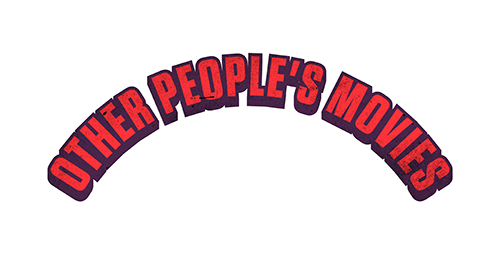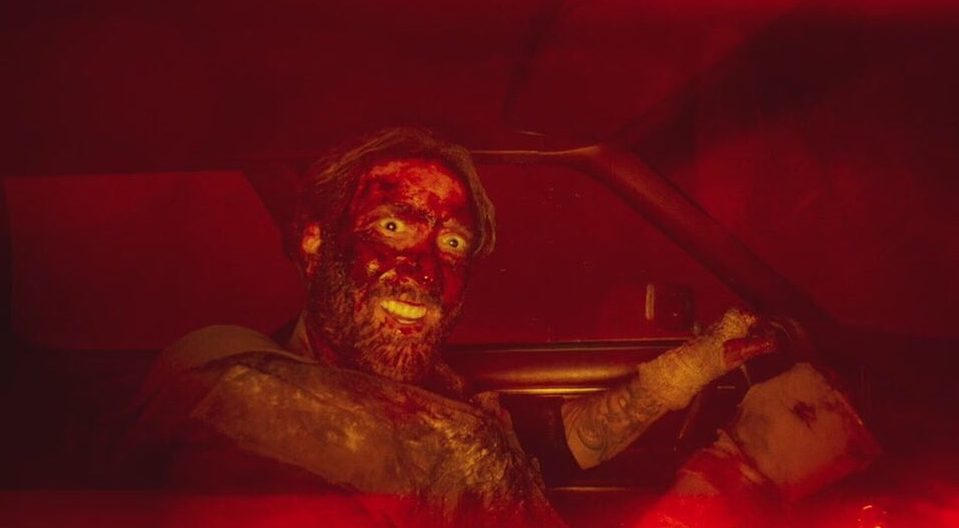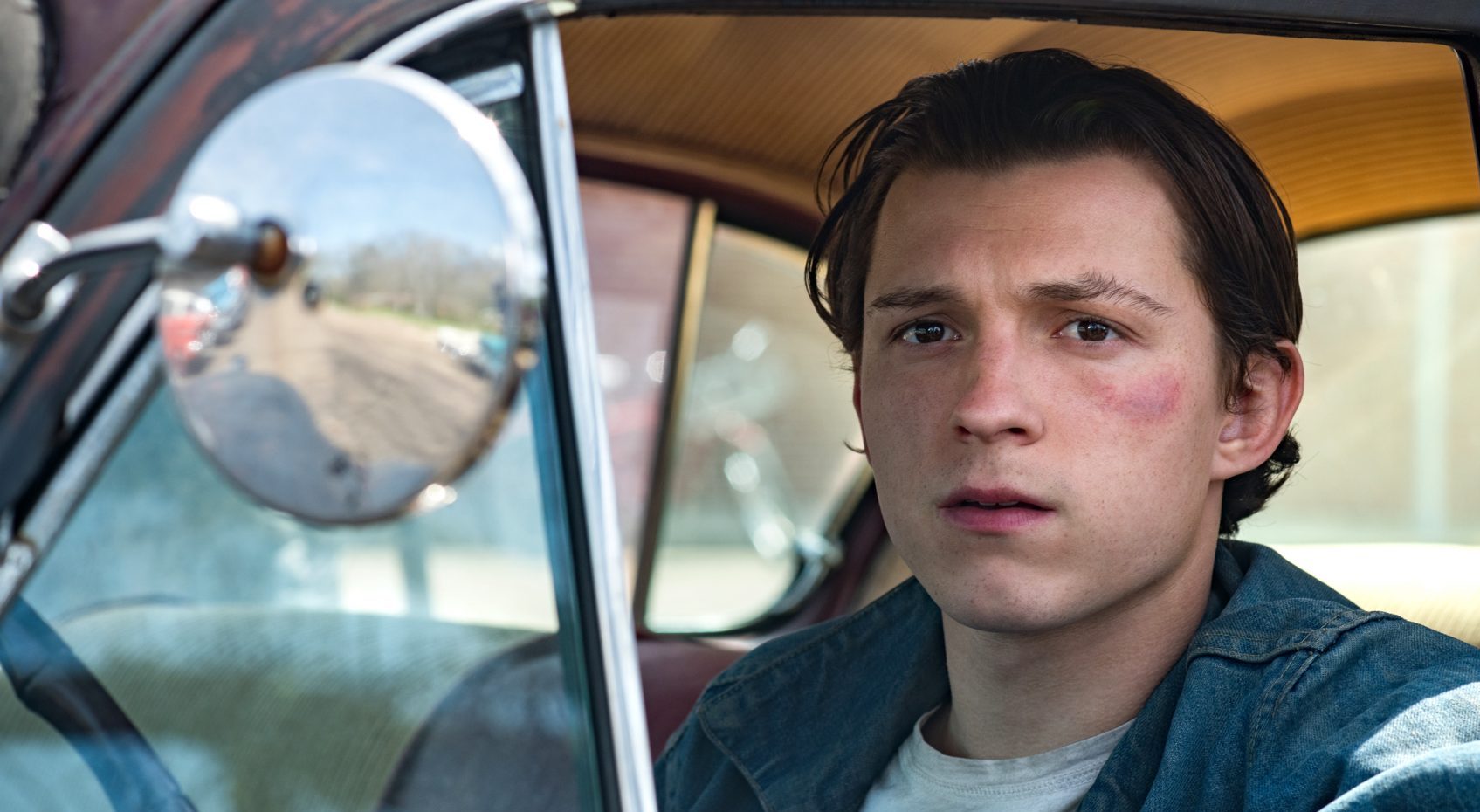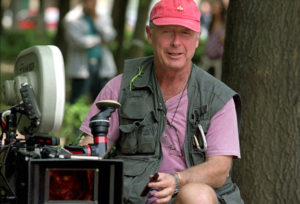
When Tony Scott prematurely passed away at the age of 68 on August 19, 2012, the hole left in his fans’ and collaborators’ hearts was best expressed by a tweet Ron Howard posted on the same day: “No more Tony Scott movies. Tragic day.” Many other filmmakers and actors who had worked with or been influenced by Scott (Robert Rodriguez, Edgar Wright, Tom Cruise, Patricia Arquette, etc.) echoed similar sentiments on social media throughout the day. One of the greatest and most influential filmmakers of our time had finally (and tragically) received some long-overdue respect.
To call a filmmaker behind such tent poles in popular culture as Top Gun, Beverly Hills Cop 2, Days of Thunder, Crimson Tide, and Enemy of the State underappreciated almost seems trivial. In order to do so, one has to remember how little applause he received for delivering just as many gritty and artistically daring titles such as The Hunger, Revenge, True Romance, and Domino throughout his career.
Due to an imposed snobbery found in many of the major critics of his era, Scott’s films were often written off as vapid or childish at the time of their release. Not to mention, he was long overshadowed by and unfairly compared to his older, “classier”, and more critically regarded filmmaker brother, Ridley Scott (director of Alien, Blade Runner, and Gladiator).
It’s understandable why Tony Scott hasn’t received the credit he deserves but it’s certainly not justifiable, especially when you look at the broad range of films he left behind to give us, to quote our interviewee, “The Tony Scott Experience” as a whole.
In his lifetime, there was no thorough examination of Tony Scott’s life or work that was published in one complete volume. Such a study remains long overdue to this day. Luckily for Tony Scott fans, Nick Clement is now here to fill that void, as he is currently at work on a book about the filmmaker and his work. Still in the interview stages on the project, Clement has been generous enough to agree to an interview with Other People’s Movies in anticipation of the upcoming biography/career study.
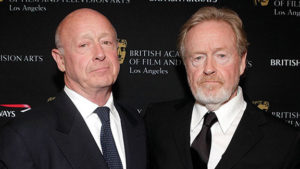
Thanks for taking the time to talk to us, Nick. Before we get into everything Tony Scott, why don’t you tell us a little about yourself? How did you get involved in writing and who have you written for in the past? Who are some of your influences?
Clement: I really appreciate the invite to chat, and anyone who is a fan of Tony Scott’s work is someone who I want to talk with. So it’s certainly a pleasure. I started writing movie reviews in high school. I’ve always loved watching movies, and I grew up in a very film-friendly household in Connecticut. My parents were the cool ones who had HBO and Showtime, so the basement at my family house became a big congregation area for the neighborhood kids. So I’ve always loved movies and as I got older I realized I was more than just in love with cinema, but that I was fascinated by it in all of its forms.
I studied film in college, both analysis and production, and I spent my 20’s in Los Angeles working for Jerry Bruckheimer and Tony Scott and on the movie Seabiscuit as an assistant to Gary Ross and Allison Thomas. I worked at all of the agencies, and even dabbled as a talent coordinator at a reality television shop that repped writers and directors and cinematographers and editors. After working in the industry for a bit, I decided that making movies wasn’t for me, but I’ve never stopped passionately discussing them.
So, I started blogging in 2007, and then I started writing on Facebook, and through a series of connections, I started writing for Variety a couple of years ago, which is a dream come true in many ways. I’ve contributed to We Are Cult, Back to the Movies, I co-founded the website Podcasting them Softly and did hundreds of hours of interviews with industry talent for that outlet. And now I’m writing a book about my favorite filmmaker of all time, Tony Scott. I’m still in the interview stages but I have an outline and a proposal and lots of wonderful quotes from Tony’s collaborators. I even had a trailer for the book cut by my friend, who is an editor out in Los Angeles.
As far as critical influences go, Roger Ebert is a hero – always has been and always will be. His sense of optimism and love for cinema can be felt even in the critiques of films that he hated. He reviewed films based on their standing within genre, and while I think he missed the boat a few times, I’m not sure if there’s ever been a critics I’ve enjoyed reading more. I loved reading Janet Maslin, she’s one of the first critics I really paid attention to. Pauline Kael is fun to read as long as you don’t take all of her writings too seriously. I’m a fan of Todd McCarthy, Manohla Dargis, Scott Foundas, and blogger/critic Jeff Wells.
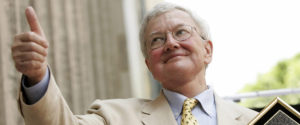
As of this writing, I’ve been Facebook friends with you for about a week. Damn, you have great taste in movies. Like me, you seem to be very rooted in the eighties and nineties. What are your favorites of all time? Directors? Also, what have been your favorite movies or filmmakers of the century so far?
Clement: My absolute #1 favorite film of all time is Goodfellas. There are so many movies I love – Heat, Pulp Fiction, Explorers, The Bear, The Tree of Life, Under the Skin, The Parallax View, Domino, Natural Born Killers, The Game, Fear and Loathing in Las Vegas, Leon, Double Indemnity – I could watch any of those titles any day of the week, from start to finish, and be a happy person.
As far as favorite filmmakers – Tony Scott, Scorsese, Mann, Wilder, Stone, Malick, Fincher, Herzog – those are filmmakers I really love. I’m a big fan of Lynn Shelton’s work, she’s one of the best current filmmakers working. I think Denis Villeneuve is extremely talented but I wasn’t hot on Blade Runner 2049. I think Jeremy Saulnier and David Michod are both extremely strong newish voices, and Ben Wheatley is a filmmaker I’m really paying attention to.
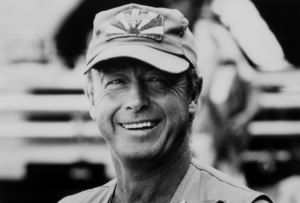
And, now onto Tony Scott. What exactly did you do for him when you worked for him? Can you share some of your experiences? What did you learn?
Clement: When I was 20 I was an intern for him. This was in the year 2000, he had just shot Spy Game and was editing the film at this private office in West Hollywood – Totem Productions. I’d work three days a week for him as an “intern” for 10 hours a day, I was getting college credit. I did anything that they needed or asked me to do! I copied scripts, took his dogs to the vet, made him his tuna sandwiches, logged tapes, did shopping trips, cleaned the humidors, watched him and Wagner edit various sequences of Spy Game, and I answered the main phone a lot. Tony had these two amazing assistants, Tom Moran and Pete Toumasis, and I’d been sent over to work for Tony after I’d interned the previous semester for Jerry Bruckheimer.
I learned that Tony Scott was even more fucking cool than I could ever have prepared myself to experience. When you grow up in Connecticut, obsessed with movies as a kid, and then when you meet your idols, as I did with Tony and Jerry and many others, your ideas can become clouded. What you thought would be amazing might not be so cool. In this instance, it was cooler than I ever thought it could be. Tony was so nice and funny and extremely energetic. He liked to mumble a lot which I thought was funny, and he always seemed like he was off on his own orbit, and everyone needed to keep up with him at his pace. I only worked at his shop for six months but it was extraordinary. I got to go to his house and park my Honda Civic under the carport next to his Porsche and his Hummer.
One of the strangest things I ever did out in Los Angeles was re-possess a car for Tony! They had fired one of the maids, I’m not sure why. She was living in Venice, and they’d bought her a Jeep Grand Cherokee so that she could drive to and from work. So after she was let go, a courier service came to the office and picked me up, and drove me to Venice, where I went up to the front door, and handed over an envelope, which had some money inside as a final payment. I was told to “get the car back.” So, when she came to the door, and I’m not sure how much English she really understood, I just said, “Hi, I’m here from Tony’s office, I need the car back. And this is for you.” I handed over the envelope, and she shut the door. I was sorta scared to not know what was going to happen next, but she came back, handed me the keys, and I drove the car back to West Hollywood. Fun times!
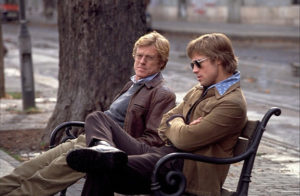
When he passed, the number of actors and crew who worked for him that had kind words for him was very moving. He seemed to be a truly generous and kind man. I heard multiple reports he treated everyone, cast and crew, with the same respect and made it a point to learn everyone’s names. That’s unheard of. Was this your experience working with him?
Clement: Yes, in the brief amount of time I spent in his personal orbit, the only type of behavior I saw was that of a cool-customer who treated everyone with respect, and who was always laughing and smiling and genuinely interested in what other people were doing. He loved his writers,that’s one thing I do know. He really loved getting new drafts of scripts in the office and seeing what was out there. He was cutting Spy Game, prepping both Man on Fire and Domino, fielding offers to direct a Bond film (would have been Die Another Day) and always working on commercials. He never stopped.
What made you want to write a book on Tony Scott? And, most obvious question, do you have a title yet?
Clement: I just feel the time is right to give Tony Scott the credit he deserves as an artist. He’s a true auteur in every sense of the word, and that’s part of the title – Tony Scott: Action Auteur. Film buffs love reading comprehensive tomes about the filmmakers that they love, and Tony has lots of fans, now even more after his death. Some people don’t realize just how many films he made, or realize exactly the titles of those films. But when you look at the body of work – it’s remarkably consistent and he always gave you the “Tony Scott Experience,” from The Hunger to Unstoppable. It’s time that people have something they can call the ultimate resource for Tony Scott.
Is the book going be more of a biography or more of an analysis of his work? Or is it going to be a little of both? They’re both uncharted territories, for the most part, so I personally can’t wait for either one.
Clement: A bit of both. I’ll be charting his background, his upbringing, looking at the parallels between him and Ridley. But it’s mostly a scholarly exploration of his films, dissecting his aesthetic, which never stopped evolving, and looking at the various themes that interested him. His films really do line up brilliantly in terms of creating an impression of who the filmmaker was behind all of the madness.
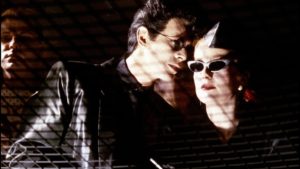
The shift from The Hunger, his first film, to higher budget films like Top Gun and Beverly Hills Cop 2 was a jarring one. When you look at it in retrospect, it just doesn’t make any sense. How and why do you think Hollywood put him in that place after delivering such a strange, artistically challenging, and financially unsuccessful film like The Hunger.
Clement: Well, The Hunger was a beautifully mounted film that bombed with both critics and audiences at the time of its release. Tony wound up in “director’s jail,” and after Don Simpson and Jerry Bruckheimer saw his legendary Saab commercial with the fighter jet, they apparently said – that’s the guy we need for Top Gun! Tony’s slick and gritty style was of course a perfect match for something like Top Gun, but I’m not sure anyone could have predicted that the bloke who kicked it off with an artsy, sexually-charged vampire film was going to be a natural fit for studio-based actioners. But it was that sense of style that appealed to Simpson and Bruckheimer, and well, the rest is history as they’d say.

Revenge is one of my favorite (and lesser known) Tony Scott films. He strangely released a director’s cut a decade or so ago that was twenty minutes shorter. I liked both cuts, but thought it was an odd choice to cut it down. Why do you feel he did this? Was Revenge the one he just couldn’t put down/get right because it meant so much to him?
Clement: I honestly have no clue what compelled him to re-cut Revenge, other than him literally being able to do so, and maybe never thinking he’d ever be given the chance? What was released was not well-received by most critics and audiences didn’t like the film. I think the theatrical cut is absolutely brilliant, and one of his best, most mature films. It’s just so bleak and nasty and I think that Tony was always a very warm, sympathetic person. The differences between the two cuts are drastic – from the music to the overall sense of tone to being considerably shorter. I’m not really a fan of the changes he made to Revenge, but he’s the creator, so he had his reasons and prerogative to re-jigger something he wasn’t entirely satisfied with. Even if he did have Quentin Tarantino chiming in his ear for years that it was a masterpiece!
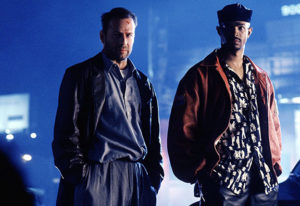
The Last Boy Scout (another favorite of mine) was supposedly a horror show for Tony Scott and the worst experience he ever had making a film. There’s very, very little information out there about the making of this movie, I have desperately wanted a “special edition” Blu-Ray of it for years. I’m sure you don’t want to give too much away, but will your book touch on any of this? Can you give us any hints?
Clement: I’ll definitely be diving into the production history of The Last Boy Scout from every possible and available angle. I’ve spoken to people who have worked on it and everyone has confirmed that it was a very troubled shoot, there were too many cooks in the kitchen, too many egos and expectations, and there didn’t seem to be a unified vision when you hear it from people who worked on the movie. Now, as a viewer, I’ve always thought it was a supreme ass-kicker. It’s rough around the edges, but by design, and I think it’s basically a treatise on genre in the same way that Simon West’s Con Air is a statement about a particular type of film. I think that The Last Boy Scout has aged like a fine wine, and despite everyone essentially having a miserable time while making it, it’s become iconic.
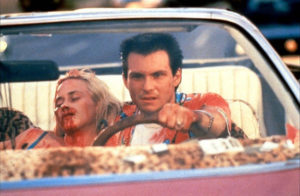
True Romance is not only my favorite Tony Scott film, but it’s my favorite thing Quentin Tarantino ever wrote that made it to the screen (not counting Natural Born Killers, since it was altered by director Oliver Stone and disowned by Tarantino). Sadly, it’s often considered as “missed opportunity” amongst Tarantino’s fans because he didn’t direct it. I couldn’t disagree more. What’s your take?
Clement: It’s his mid-career masterpiece, and a wonderful synthesis of both Tarantino and Scott. It’s also just so much fun! That cast could never be replicated again today, for so many reasons, and no modern approximation of that cast exists today. It’s got a little bit of everything – it was Tony’s first “kitchen sink movie,” and I think True Romance really ties strongly into the narrative and thematic fabric of Domino. I also think Tony was right to change the ending; Tarantino, the nihilist that he can be with killing off his characters, was famously upset at first when he found out that Tony wanted Clarence and Alabama to live at the end of True Romance, but when he saw the finished film, he realized he was wrong, and that Tony was correct. The thing is this – for all of the blood and stunts and action and elements of danger in his films, Tony always LOVED his characters. He wanted to put them through the wringer but then let them live at the end of the day – have his cake and eat it too as a filmmaker. He was able to get away with this whereas there have been plenty of directors who haven’t been able to perfect this type of storytelling.
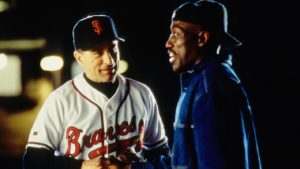
The Fan rarely gets talked about. Admittedly it’s a very flawed/unbalanced film (from what I understand Tony Scott himself was disappointed with the movie), but it’s an interesting one with some great scenes. It’s probably destined to be somewhat forgotten, though. How do you feel about the film? Where do you think it fits in the grand scheme of his career?
Clement: I’ve always enjoyed it, and over the years, I think it’s gotten better upon repeat viewing. I saw it opening night in the theater, and it was such a visceral experience. Tony had asked the cinemas to really crank the sound up on that film, and it was a dizzying experience, and it’s unlike anything else he ever done; it’s his “Nine Inch Nails Movie.” And yes, you’re correct, he was never entirely happy with the finished product. There were lots of production problems on The Fan, and I can remember on my first day of working at his office, Tom Moran, one of his assistants, came up to me and said, “Listen, Nick. You can do whatever you want here. You’ll have lots of fun and Tony is a great guy. Just don’t ever bring up The Fan.” I laughed and told him how much I enjoyed it. He repeated: “Don’t bring it up.” So, I never brought it up! I think what happens is that the wounds are still fresh when films don’t work out, and that was only five years previous when I was working for him. It’s a hard-core movie with some feverish visuals and I love the aggressive nature of the entire piece.
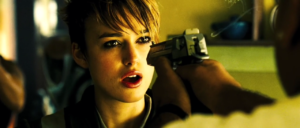
Your “Top Ten Tony Scott Films” list on TOC ranks Domino as number one. I love Domino, but True Romance will always be number one for me, with Man On Fire and The Last Boy Scout close behind. However, after reading your list, I have to admit it really is the quintessential Tony Scott movie. It may not be my personal favorite, but it’s definitely the “Scottiest” of Tony Scott’s work. Why do you think audiences and critics didn’t get behind it?
Clement: It was just too much of a good thing for everyone to fully grasp. Domino is the apex of Tony’s heightened visual style, and I think it basically encapsulates every thematic and aesthetic idea he’s ever had. The level of visual creativity and ingenuity in that film is striking; it’s a fractured piece of art made by the mind of a cubist painter who happened to be painting with light and film stock rather than paint and a brush. It came during a cycle of extremely intense actioners like Smokin’ Aces, Running Scared, and Shoot ‘em Up, all of which failed to find a theatrical audience, but all of which have become recent cult favorites. It just takes time with certain titles.
Do you think it’s financial and critical failure hurt him career-wise/lead him to not being able to as many wild artistic risks he was taking?
Clement: Well, it wasn’t a cheap movie. Domino cost $50 million of independent cash, with New Line releasing the film. It lost money for everyone undoubtedly, but at the end of the day, Tony got to make the movie he wanted to make. It was also produced by Sam Hadida, who of course brought him aboard True Romance. And no, I don’t think it hurt his career, because immediately after Domino, he re-teamed with Bruckheimer on Déjà Vu, which is one of the most visually extravagant studio actioners ever conceived. Sure, it wasn’t as aggressive as Domino, but it’s a very dense movie on a visual level and he repeated many of the same motifs from Domino all throughout Déjà Vu, and then into The Taking of Pelham 123, and to a lesser extent, Unstoppable. His amazon short film, Agent Orange, is very much worth tracking down, as you can see the seeds of this cracked-out style taking form.

If reaction had been more positive to Domino, do you think we would we have seen more passion projects from him (his Pancho Villa movie, his Warriors remake, his Hell’s Angel’s project, his long-on-the-table Emma’s War) with the raw, experimental style he developed at the artistic peak of his career (Man On Fire, Domino, the shorts Agent Orange and Beat the Devil) or would he still have stuck with the “less aggressive” blockbusters you mentioned previously? Or do you think he could have started a new track, stylistically speaking?
Clement: Tony always wanted to be active and making something. He turned down a lot of projects, and if you notice, he never did a franchise movie or a superhero film, though that stuff interested him from time to time. He was like his brother – Tony liked to develop material, and some of those movies would have been very costly and would have likely needed to be financed outside of the studio system. I don’t think the financial failure of Domino hurt his career in any major sense. And I think he was wise to back off on his proposed remake of The Warriors, even if it would have been inherently cool to see “Tony Scott’s The Warriors.”
Tony’s style was always emerging. He never seemed concerned with what he thought other people would like, but rather, he made his type of films his way, and if you latched on, then you were one of the lucky ones. As with anyone of his level of spontaneity and creativity, I think it’s safe to assume that he would have further pushed his trademark style into new realms, while potentially dialing it back for some projects that might not require such a level of visual sophistication.
Tony Scott’s influence is all over the modern action movie: The Fast and the Furious franchise, the John Wick movies, Michael Bay, Edgar Wright, Zack Snyder, even some of Michael Mann’s and Ridley Scott’s more recent works. Their editing, their coloring/filter selections, their set-ups, their use of popular music…it all started with Tony Scott to a very large degree. Do you think he’s gotten the credit he deserves tor this yet? What modern directors do you think were influenced by Tony Scott/hold a candle to his work?
Clement: I think the credit he deserved for a long time is finally starting to be paid. When he died, there were some amazing pieces written, most notably by Dargis, and a few others, who truly spoke about the type of artist he was, and just how influential his style has been on so many filmmakers. His imprint will be forever lasting, and even if you’re not a fan of the MTV-aesthetic that he and his brother and Adrian Lyne and Alan Parker brought to the table in the 1980’s, his footprint is still something that needs to be recognized. I think the most obvious comparison would be to Michael Bay, who from what I’ve heard, always fashioned himself as a “new” Tony Scott. I’ve never spoken with Bay for an interview though I did meet and interact with him a bunch of times when I was working for Bruckheimer, but I’d like to think that Bay, if he could move away from the Transformers stuff, could make the types of entertainments that Scott was known for making. But the “Tony Scott Influence” is remarkable to observe – Peter Berg, Daniel Espinosa, Simon West, Renny Harlin, and so many others – these guys must’ve loved Tony’s tricks of the trade.

The Faber and Faber book series, Projections, had a great interview with Tony Scott in volume ten. In that interview, he gave a lot of information on his influences/inspiration/background. Like Ridley Scott, Tony Scott was a very sophisticated man. He was educated, he was a trained painter, and he spoke of wanting to make films along the lines of his brother, Nicolas Roeg, or Polanski. I took from that interview that Tony Scott was a frustrated artist at heart, but your previous comments already shed a new light on that/give me a different perspective. I do wonder what kind of crazy career he might have had if The Hunger had been received more favorably. That being said, I never felt like his Hollywood blockbusters were “phoned in”. The passion, the sincerity, and and the desire to experiment were always there. Yes, he had an eclectic career, but they always felt like “Tony Scott movies.” Do you think he was happy with his career just the way it was or was he, in the end, a bit of a frustrated auteur?
Clement: I think that every filmmaker wants to make as many films as possible, and to be as diverse as possible. The reality of the situation is that when you’re so good at doing one particular thing, that’s what you become known for, and that’s what people trust. Sure, I think there was a side to Tony that might be labeled the “frustrated artist,” but I do think he genuinely loved making the movies he had the chance to make. He was addicted to adrenaline and rock and roll and sex and drugs and craziness, and I think his films reflected that mindset.
Tony Scott gave the audience “The Tony Scott Experience” with every single film. I think he’s an auteur in the truest sense of the phrase, and I think what’s most interesting is that he became an auteur through the modern studio system, as opposed to an indie filmmaker or someone from previous decades. Just think about all of Tony’s films as one collective piece of entertainment; it’s almost impossible to think that he got the budgets he did to tell those types of adult-oriented entertainment. If he were still alive and making movies now, I honestly think he’d be disgusted with the CGI/Superhero/Fantasy/End of the World obsession that the studios have. So when I think of Tony’s entire career, words like forceful, committed, and unified vision come to mind.

What do you want people to take away from your upcoming book? How do you want them to view Tony Scott after reading it? Or is too early to tell right now?
Clement: My goal is for people to enjoy it, first and foremost. I want it to be a book that will of course appeal to those who adore Tony’s work, but I also want to grab those film fans who might not fully realize the scope of Tony’s entire career. My goal is to showcase the immense sense of passion that Tony had for his work in the pages of my book, and for people to put it down and want to cue up one of his movies on Blu-ray.
Is there a publisher or is it currently being shopped?
Clement: No, I don’t have a publisher yet. Do you know anyone?
Thank you so much for your time, Nick. I seriously can’t wait for your book. We’ll have to talk again when the book’s finished.
Clement: It was my pleasure, and I’d love that. Thanks so much for shining a light on one of the best directors who has yet to get his full due.

Nick Clement is a writer, screenplay consultant, and movie lover who has contributed to Variety Magazine, Entertainment Voice, We Are Cult, Back to the Movies, Taste of Cinema, Awards Daily, Hollywood-Elsewhere, Podcasting Them Softly, and MovieViral. He’s currently writing a book about the life and work of filmmaker Tony Scott, and lives in Connecticut with his family.
